
The debate around communion remains hot across the denominations and within individual churches. What is the right way to do it, or is there a specific “right way?”
Maybe when it comes to the frequency with which it is offered, the sort of bread or wafer to use, or choosing grape juice over wine, there is no right answer.
Then again, there are some important things Christians get wrong about communion. Here are seven of them.
Photo Credit: ©iStock/Getty Images Plus/pamela_d_mcadams

1. We Ritualize Communion
Joe Rigney writes that he once adhered to a series of “unwritten rules for receiving the Lord’s Supper,” which included bowing his head and hunching his shoulders “so that you feel the heaviness of this time better.”
He believed he should spend a lot of time contemplating his own wickedness, a perspective not entirely without a scriptural basis. We are to come repentant, which means confessing our sins. Rigney wanted to do it right.
But doing it right can lean towards religiosity. Christ spoke out against the religious Pharisaical patterns which are “heavy burdens, hard to bear” (Matthew 23:4), yet they do not touch the heart of a worshiper.
Rigney’s rules “distorted the gravity that should mark the meal. I always felt rushed because I was rapidly running through my mind looking for leftover, unconfessed sins.”
There is and always was a place for ritual, especially where the Lord’s aim was to keep his people holy and separate from the pagans around them. “You shall not do as they do in the land of Egypt, where you lived, and you shall not do as they do in the land of Canaan, to which I am bringing you” (Leviticus 18:3).
We, as believers, are doing something different; but as gospel-believing Christians, one of those “different things” is to realize that we are not saved by religion; we are saved by grace.
Photo Credit: ©iStock/Getty Images Plus/CreativaImages
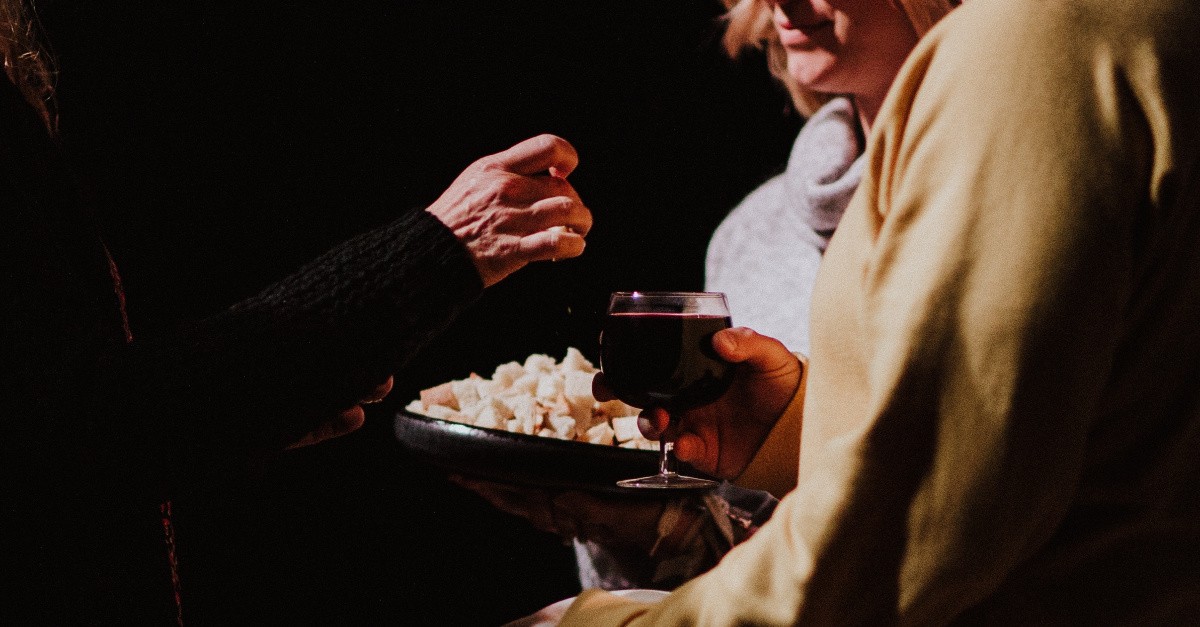
2. We Make it about Us
Rigney confessed that, by hunting for unconfessed sins, he was making the Lord’s Supper about himself. Instead of spending that time contemplating Christ, he was contemplating his own sin nature.
While humility is important, an over-extended focus on personal sin makes self-hatred more like an upside-down kind of pride. I am the lowest. I am the worst. No one is worse than me.
We can even take it to the extent that we think God cannot forgive our sins — oh no, those sins are far too grave. The Lord’s Supper, Jesus’ forgiveness, the cross: that is well and good for everyone but me.
Notice the emphasis on “me” and “I,” not to mention the part where one thinks there is any insufficiency in Christ’s salvific work. “He is the propitiation for our sins, and not for ours only but also for the sins of the whole world” (1 John 2:2).
Communion is about Christ. Certainly, we need to examine ourselves. We need to bring up any unconfessed sin and genuinely repent of it. We need to realize, during communion, the cost of our sins.
But we worship a living, victorious God. We must not linger too long in our grief lest it become shame instead of conviction; lest we stay in the sense of our sinfulness instead of pursuing righteousness by the power of Christ.
As Kevin DeYoung observes, “We should feel guilty sometimes, because sometimes we are guilty of sin. Complacency as Christians is a real danger [...]. Yet I don’t believe God redeemed us through the blood of his Son that we might feel like constant failures.
Photo Credit: ©Priscilla du Preez/Unsplash
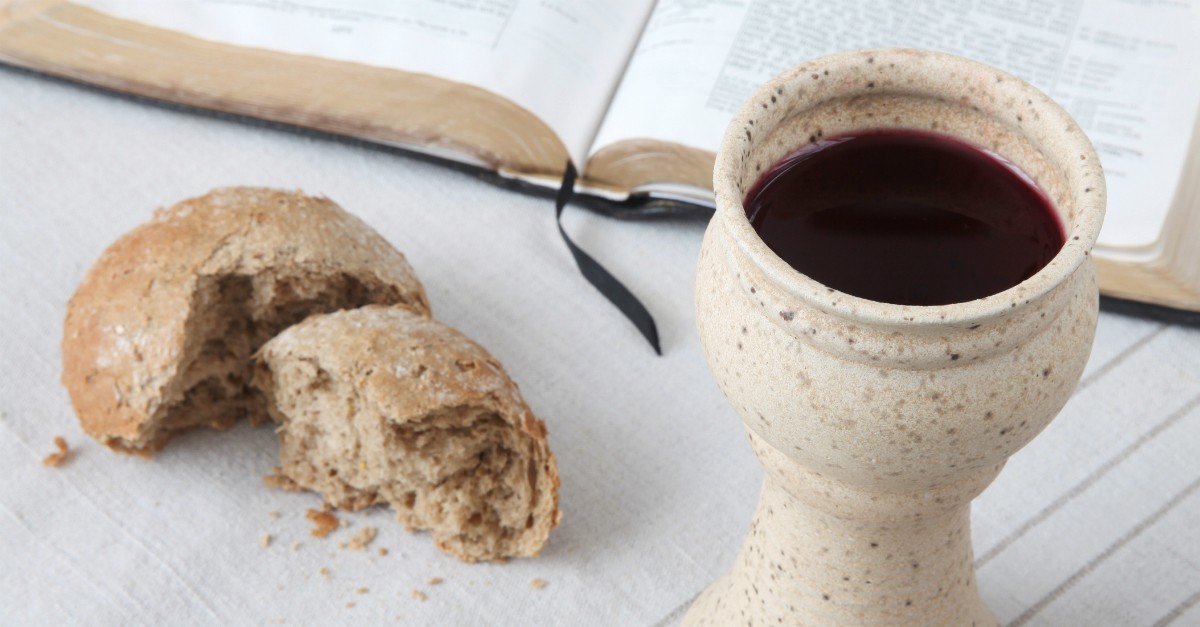
3. We Watch the Congregation
The pastor’s job is to indicate what communion is about, to offer it to believers, and to advise the congregation that only those who believe in Christ alone for salvation should take communion. What will happen to the person who ignores these instructions?
Paul wrote that “whoever, therefore, eats the bread or drinks the cup of the Lord in an unworthy manner will be guilty concerning the body and blood of the Lord” (1 Corinthians 11:27).
We must understand that “an unworthy manner,” as John Piper puts it, means an unbelieving manner in which one is not “grasping the utter uniqueness and glory of Jesus’ physical body as an infinitely valuable sacrifice for sins.”
If an unbeliever takes the cup and the bread, his or her main problem is unbelief anyway, not taking communion as an unbeliever (although 1 Corinthians 11 does say people become sick when they partake unworthily).
You could be sitting beside someone who you know is not a believer, and yet this person takes the bread and the cup. If he asks you “Should I take it?” you must say, “No.”
If he does not ask and you are focusing on his sinful disregard for the purpose of communion, then you are also forgetting the purpose.
Communion is corporate and personal at the same time. Those who scan the crowd are not spending that time allowing the Lord to convict them, lead them to forgiveness, and let them experience the reality of his forgiveness for their sins.
Photo Credit: ©GettyImages/IngridHS
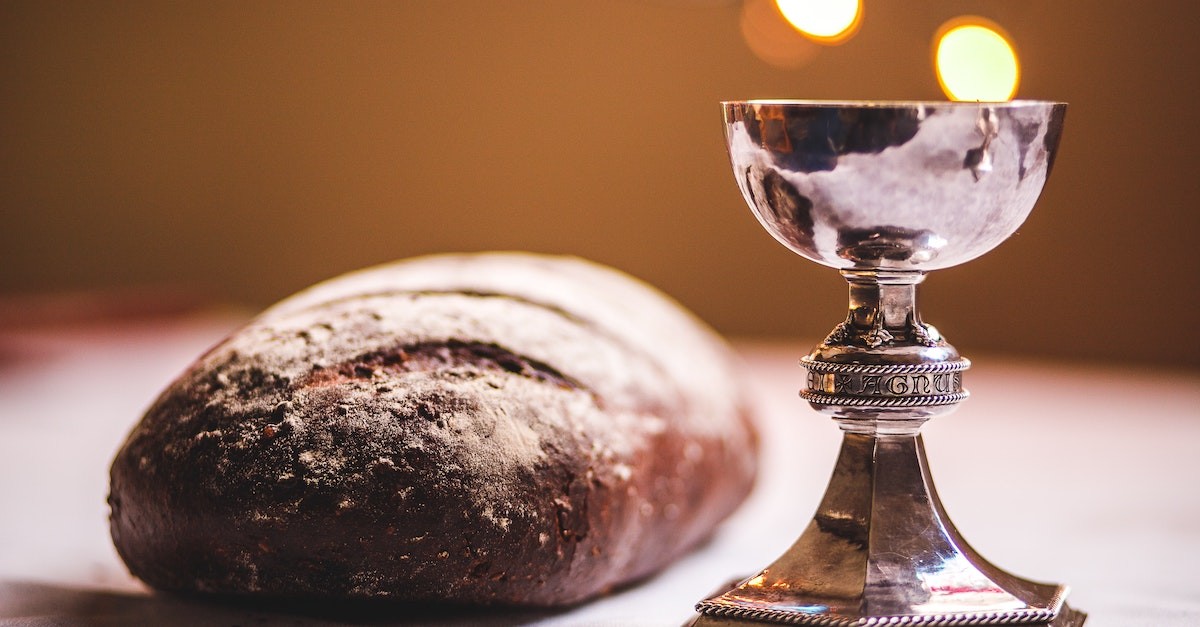
4. We Lack Awe
Rigney’s objective was “to make myself feel the weight of my sin and the horror of the cross.” While focusing on his personal failings, his approach was missing “a strong sense of awe, wonder, joy, Godwardness, and gratitude. In my zeal for gravity, I had forgotten gladness.”
Piper points to the hardship and the joy of the Lord’s Supper which “is a participation in Christ.” Communion represents a shared meal, where Christ is the head of the table. Koinónia means, “What is shared in common as the basis of fellowship”.
The body of Christ comes together at this meal, with a common goal: to worship Jesus, whose blood was spilled and whose body was broken for the sins of the world.
“Spiritually, [...] we feed upon him by faith and are nourished and satisfied in our souls. No unbeliever can do this. And that’s the meaning of the moment. It’s not designed that they should” (Piper). This is a mysterious event, simultaneously sad and joyful.
We are joined with Christ as children and friends but also fellow sufferers, following Jesus, the one who went before us to Calvary. “The cup of blessing that we bless, is it not a participation in the blood of Christ? The bread that we break, is it not a participation in the body of Christ? Because there is one bread, we who are many are one body, for we all partake of the one bread” (1 Corinthians 10:16–17).
We will never know the full cost of our sin because He took our place, willingly, lovingly, and joyfully. How can we approach communion with anything other than awe?
Photo Credit: ©Unsplash/JamesColeman
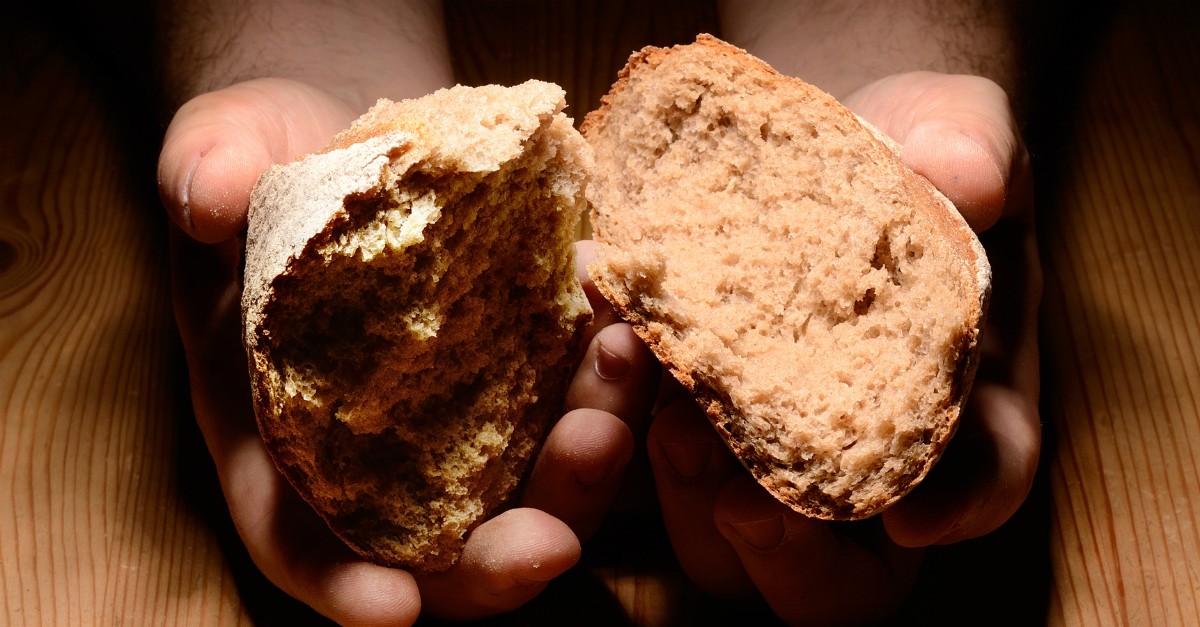
5. We Approach Unrepentant
Rigney explains that “the Lord’s death is explicitly a death for sinners.” Only a Christian should partake of communion, but even a Christian will sometimes forget his status before the Lord: we are all sinners, right now and until we enter Glory with Christ. “Whenever you eat this bread and drink this cup, you proclaim the Lord’s death until he comes” (1 Corinthians 11:26).
At this table, we confess that Jesus died for sinners. His blood is on our hands unless we believe and come to the table repentant.
Paul rebuked the Corinthian church because they were blatantly sinning yet going to the table. They were “despising the members of the church” and, therefore, “they were despising the Lord who bought them” (Rigney).
They were “guilty of sinning against the body and blood of the Lord” (v. 27). Paul instructed the Corinthian church to “examine themselves before they eat of the bread and drink from the cup” (v. 28). Let the Lord uncover sin in your life.
Take the quiet prayer time offered by your pastor to really think about where you have gone wrong with God. Even in the midst of suffering, he will reveal some transgression: doubt, fear, anger, or self-pity.
Acknowledge the sin, take it to Jesus, show him, ask him with a repentant heart to be transformed. Let him remind you by his grace that he has already dealt with that sin.
Photo Credit: ©GettyImages/Thomas Soellner

6. We Leave Heavy
Notice that the pastor will often proclaim, “Christ has died; Christ has risen; Christ will come again!” No other faith offers this promise to its members; no other truth provides such solace.
The Christian faith is built on grace and hope, both of them founded in the body of Christ, but not in the buried body. Christ rose. How often do Christians forget that our Savior rose from the grave and defeated sin? The cross was not the end of his story or ours.
What do we have to grieve once we have confessed, repented, and been forgiven? There will be another time to do the same over again, perhaps even a few hours later. But there is time to rest in His forgiveness.
Piper commented that at communion, we take fellowship in Jesus’ death. But Paul has also assured us that “if we have been united with him in a death like his, we shall certainly be united with him in a resurrection like his” (Romans 6:5).
Paul was assuring the church that dying for their beliefs would not be the end, and that they would enjoy eternity with Christ. But they would be resurrected to eternal life also.
Those who remain downcast in their sin have forgotten that Christ rose from the grave, or that they are supposed to let go of sin at this table, not merely show it to Christ and then take it home with them.
Photo Credit: ©iStock/Getty Images Plus/Mizina
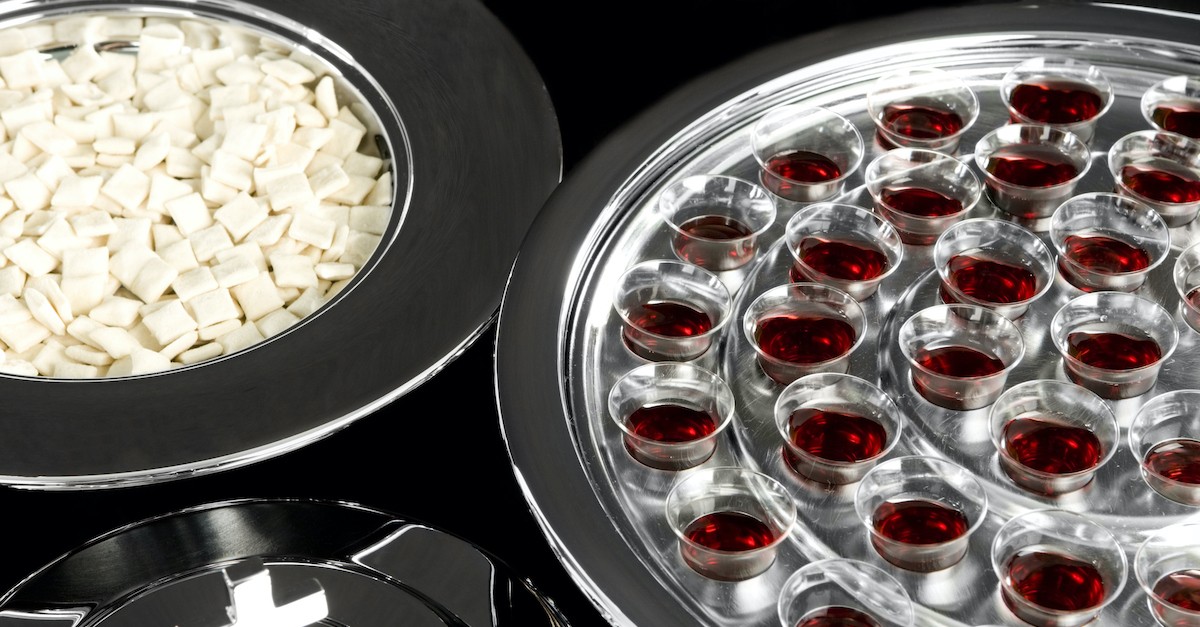
7. We Only Gather at the Table
Rigney and Piper both stress the importance of fellowship when we come to the table. This is not a TV dinner sort of meal, but something to be experienced in the company of other believers. The Lord gathered all of his disciples, and they took part together.
He could have taken a few of them aside or offered them communion one by one. There are personal elements to our walk with Christ, and we come to him individually even at the table. But we do it as a family because we walk with Christ as part of a body.
And then, do we leave the church and go our separate ways, opting to avoid all manner of fellowship for the rest of the day and the rest of the week?
We all need alone time, even Jesus went away by himself to pray, but is the Lord’s Supper one’s only time of gathering for a meal and acknowledging the joy of knowing Jesus as Lord and Savior?
Remember the awe of being invited to this corporate table? You do not have to reserve this experience for just once a week, or once a month. Moreover, to engage in fellowship at other times is an opportunity to invite others to experience the beauty of corporate engagement to the glory of God.
Christian fellowship starts at the communion table, but if it stops there, perhaps you are missing the full meaning of “Christ’s body.”
There is no reason to approach the table filled with doubt or fear about your salvation. Rigney reminds us that Christ “established the meal with thanksgiving.”
Approach in reverence, approach grieving your sin, but leave the table exultant and find rest in the forgiveness Christ offers at the table.
For further reading:
When Should We Not Take Holy Communion?
Why Is There So Much Disagreement about Holy Communion?
Should Wine or Grape Juice Be Used for Communion?
Photo Credit: ©GettyImages/JeffXD

Originally published Thursday, 16 November 2023.
